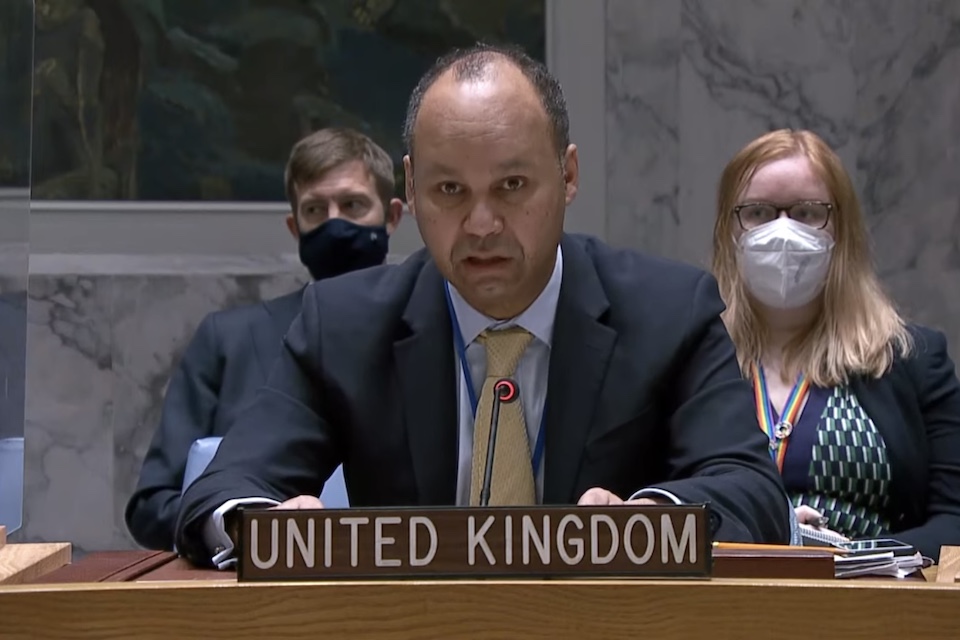Addressing the continuation of disinformation on chemical weapons in Syria
Statement by Ambassador James Kariuki at the UN Security Council briefing on the situation in the Middle East/Syria

Mr President, I thank High-Representative Nakamitsu for her briefing.
Just ten days ago we discussed Syria’s chemical weapons in this Council. It was clear then that Syria remains uncooperative. The serious outstanding issues on its chemical weapons declaration, which include the fate of thousands of chemical munitions and hundreds of tonnes of chemical agents, remain unresolved. The terms of resolution 2118 continue to be breached. We therefore call on the Syrian regime - as we do every month – to cooperate with the OPCW and return to compliance with the Chemical Weapons Convention.
Mr President,
In the ten days since we last met, Russia has continued its war of aggression against Ukraine. Besieging cities, killing civilians indiscriminately, forcing millions to flee in search of safety. The parallels with Russian action in Syria are clear. Regrettably, the comparison also extends to chemical weapons, as we see the familiar spectre of Russian chemical weapons disinformation raising its head in Ukraine.
Russia has a long history of deflection, denial and obstructive behaviour when it comes to chemical weapons. In 2017, Putin claimed the Khan Shaykhun attack, for which the expert and impartial OPCW-UN Joint Investigative Mechanism found the Assad regime responsible, was staged by the West.
Russia has offered more than 40 different narratives about the chemical weapons attack its military agents carried out in Salisbury four years ago, and we have seen nothing but obfuscation and falsehoods in relation to the Novichok attack on Alexei Navalny.
So colleagues,
As you listen to the Russian statements during this session, I ask you to consider — who should we believe? Should we believe the state with a track record of using chemical weapons, that has denied and deflected questions about attacks by its client, the Assad regime, whether in Khan Shaykhun, Ltamenah or Saraqib? Or should we believe the independent, impartial international organisations that have conducted rigorous investigations, attributing responsibility based on clear evidence?
This Council has heard enough lies about chemical weapons from the Russian Federation. We must stop pretending that the Assad regime is acting in good faith. We should stand up for the rules we have all agreed, look those who break them in the eye and hold them to account for their actions.
Finally Mr President, I note that Libya is on our agenda for next Wednesday — I look forward to discussing it then.
Thank you.